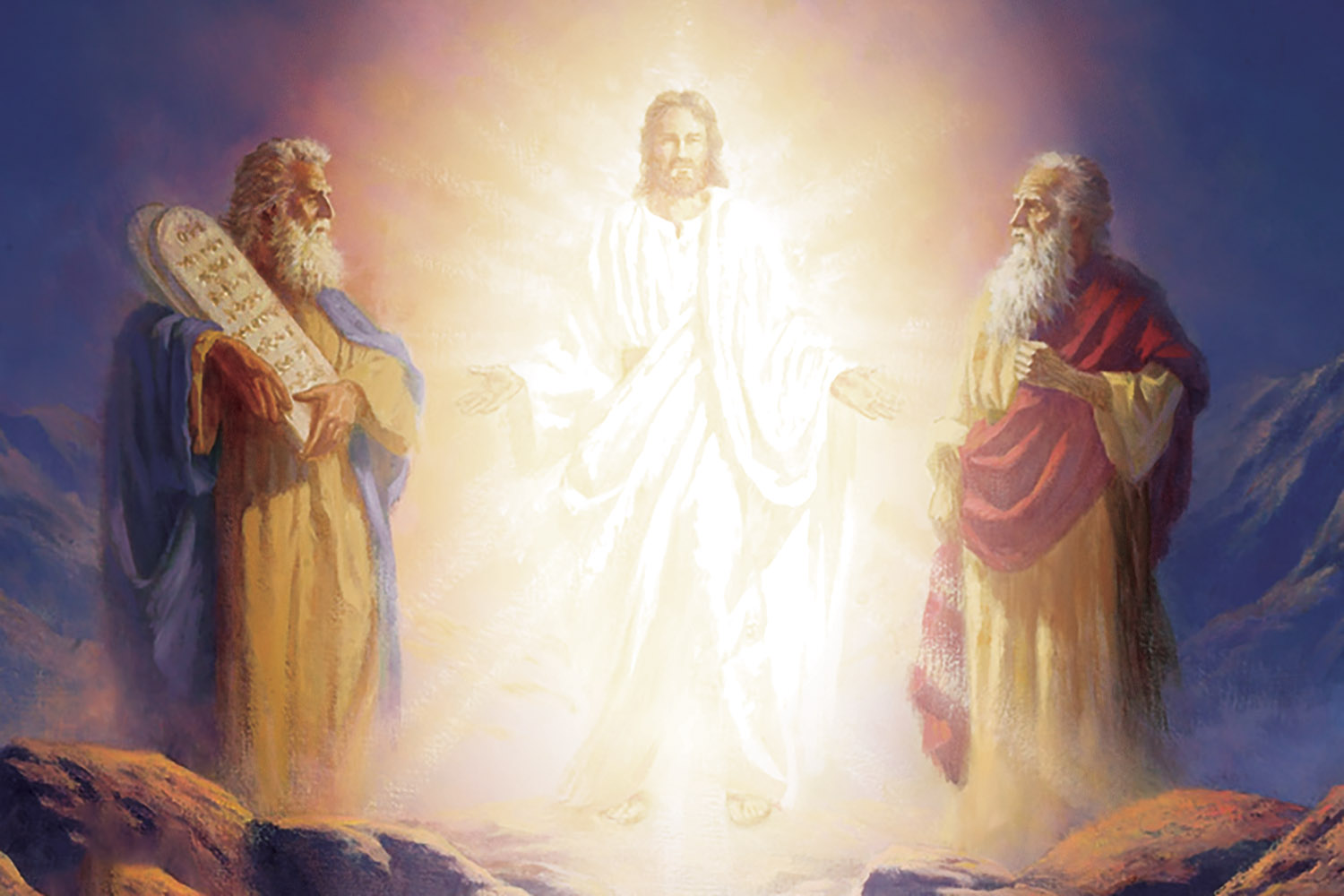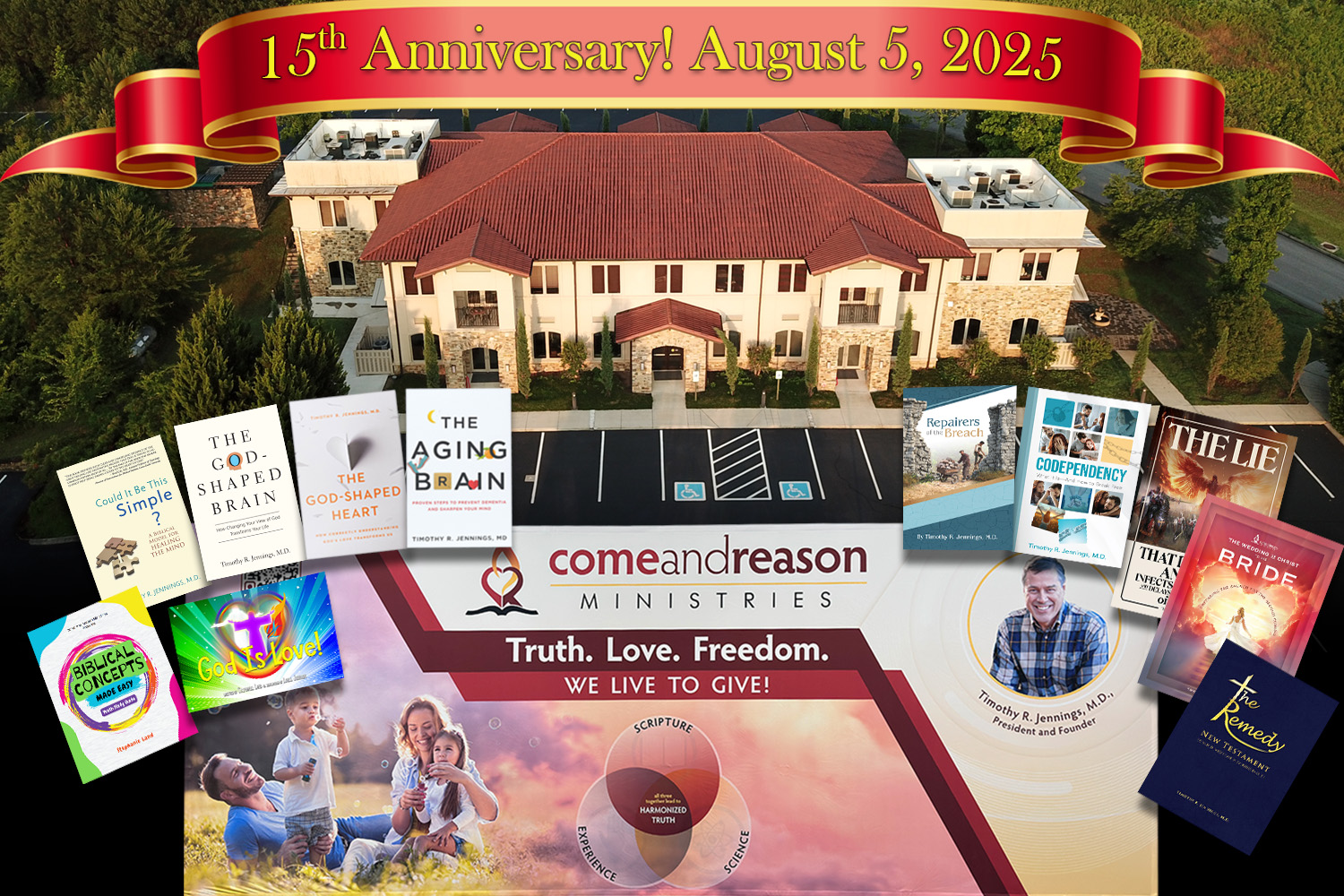Have you ever wondered what Elijah and Moses said to Jesus on the Mount of Transfiguration?
Jesus is entering the last year of His earthly ministry. He is aware of what is required of Him, of what is going to happen, of His betrayal, rejection, and crucifixion to come. He is aware of the torment of soul that our sin will require of Him, of the temptations He will face, and of the agony He will suffer when His Father’s presence is withdrawn from Him.
He is also concerned about His disciples, knowing their limited understanding of His mission, realizing how vulnerable they will be to discouragement when they see Him betrayed, arrested, railroaded, sentenced, beaten, and crucified. He prays to His Father for some evidence of His divinity that they can cling to in that moment of darkness to give them hope.
And God responds. The veil shielding Earth from heaven’s glorious light parts, divine radiance shines down to meet the divine light already abiding within our Savior, and Jesus shines brighter than the sun—but He is not alone. As His humanity prepares for His final human struggle against sin and Satan, the Father chooses two messengers to go forth from heaven to encourage His Son. God doesn’t choose angels; no, He chooses two humans, Moses and Elijah. Incredible! What a privilege it was for them to go to Jesus at this critical moment in salvation history.
Have you ever considered why these two individuals, above all the other intelligences in God’s universe, were chosen for this moment? Certainly, their presence held significance for Jesus. Having died and been resurrected, Moses represented all the saved who die in faith and will be resurrected into glory, and Elijah, being translated directly to heaven, represented all the saved who will enter glory without experiencing death. I am sure the significance of these two was not lost on Jesus.
But was that all? Or were they chosen because they had something unique to share with Jesus? What do you think they talked about? Could it be that these two human beings had unique human experiences that would be both a warning and an encouragement to Jesus in His human travails?
Is it possible that both men reminded Jesus how they were overcome with human weakness and allowed emotions of the moment to cause them to falter? Might they have been chosen to share with their Savior their regrets and the lessons they had learned?
Moses may have reminded Jesus that despite decades of faithful service, a moment came when the people he loved—whom he had offered to give his life for, whom he had sacrificed so much for to deliver from slavery and lead in the wilderness—failed to learn, failed to comprehend, failed to see past themselves to the truth of God’s goodness and love and, instead, continued to prefer selfishness. He may have reminded Jesus that the people grumbled, complained, and accused him falsely of not caring, of leading them falsely, and, in a moment of weakness, Moses allowed his feelings to take control and he struck the rock, rather than doing what God had wanted Him to do: simply speak to it.
Might Moses have said to Jesus, “Oh, my dearest friend, be ready. These people we love, they are not going to see You for who You really are. They are not going to accept You. They are going to choose fear and selfishness rather than love and trust, and they are going to reject You, accuse You falsely, abuse You, and crucify You. They will mock You, and You will feel hurt and frustrated and disappointed, and You will be tempted in every way just like I was, but don’t take Your eyes off the Father, don’t give in to your feelings—don’t do like I did and allow frustration to take control. I have faith in You, Jesus. I know you can do better than I did. And when You have won the day, when You have resisted every temptation, overcome every assault, and loved all the way to death and thereby destroyed “death and brought life and immortality to light,” I will be waiting at the gates of heaven for Your return. I love You, my friend. You can do it!”
Might Elijah have said, “Jesus, I am so sorry that our sin requires this of You. I know you are doing this because of who You are, because You love us, because it is the only way to win the war and save us sinful humans. But I hate it for You. I know Your faith in the Father is so much stronger than the faith I had at Mount Carmel, and it is going to need to be. Be ready; Satan is going to hit You with every dirty trick, every underhanded attack, every abuse and hardship that he can. And You will feel completely alone, just like I did. But You reminded me way back then that there were seven thousand who had not bowed to Baal, and I want to remind You that there are many more than that throughout history who have stayed faithful to You. When You feel alone, remember that You are not alone. And when Your soul is weighted down with grief and heartache and You feel like I did, that You just want to die, don’t give in like I did and grumble. Learn from my mistake and trust Your Father, for no matter what Your human feelings tempt You to do, Your Father loves You and is with You and is carrying out His purpose to save humanity through You. I know You can do it, my friend; I love You and trust You.”
I don’t know what Moses and Elijah said to Jesus that fateful day, but I wonder if they shared from their experience to encourage their Savior. I look forward to asking them when we all meet in heaven.









 using your credit or debit card (no PayPal account needed, unless you want to set up a monthly, recurring payment).
using your credit or debit card (no PayPal account needed, unless you want to set up a monthly, recurring payment). instead?
instead?